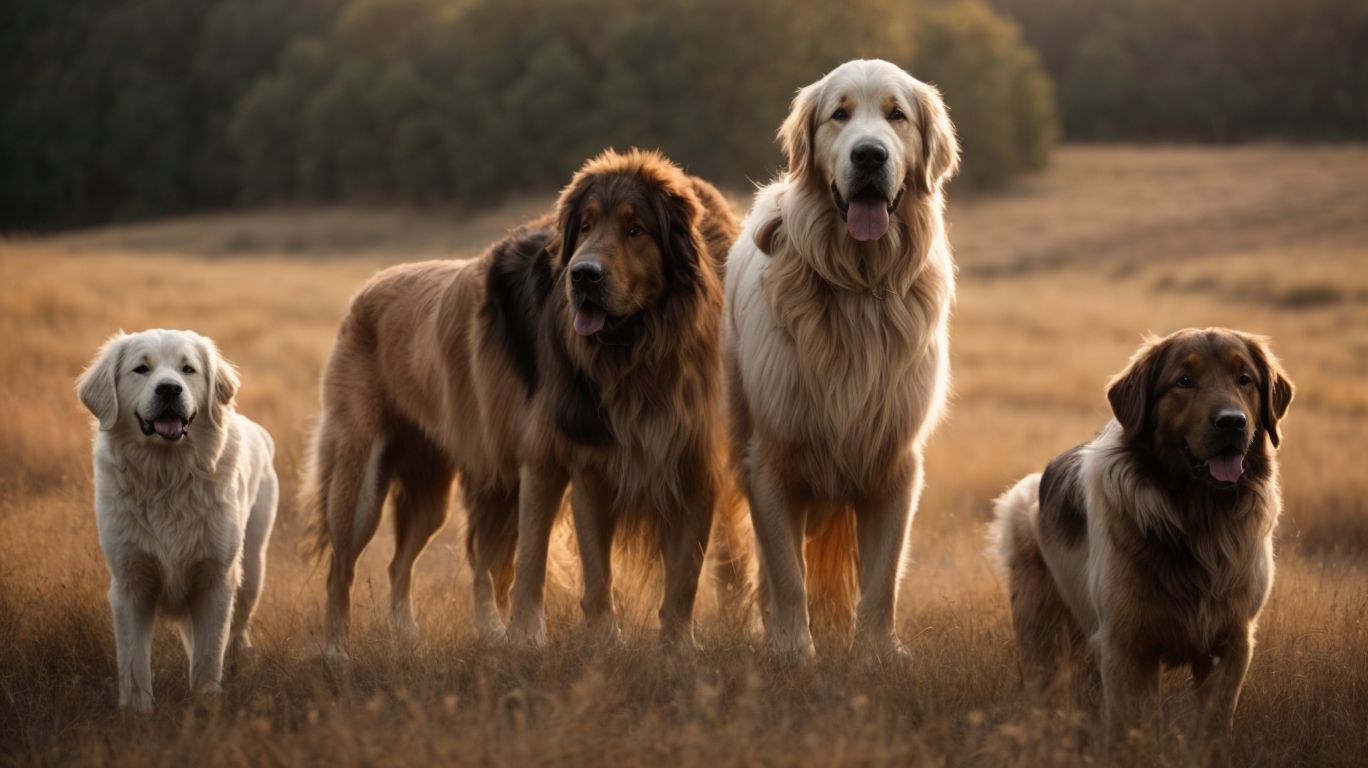
Preparing for the Loss of a Senior Dog: Coping with Grief and End-of-Life Decisions
Losing a beloved pet is never easy, and the end-of-life journey for a senior dog can be particularly challenging.
In this article, we will explore the signs that indicate a senior dog may be reaching the end of their life, both physically and behaviorally. We will also discuss how to cope with the grief of losing a senior dog, including ways to honor their memory and seek emotional support.
We will cover end-of-life decisions, such as options for euthanasia and aftercare for your dog’s remains. We will provide practical tips for preparing for the loss of a senior dog, including spending quality time with them and emotionally preparing yourself for the inevitable.
Whether you are currently facing the loss of a senior dog or want to be prepared for the future, this article will provide valuable insights and guidance.
What is Senior Dog Loss?
Senior Dog Loss pertains to the emotional turmoil experienced by pet owners when coping with the passing of their beloved senior canine companions. It encompasses a range of emotions, including grief, bereavement, and the need for emotional support during this challenging time.
The unique bond and memories shared with senior dogs play a significant role in the coping process. Through years of companionship, countless memories are formed, creating an unbreakable bond between the pet and the owner.
Veterinary care also plays a crucial role in providing comfort and support during the aging process and eventual loss. It’s essential for pet owners to seek emotional support and understanding from friends, family, and professionals to navigate the grieving process and find solace in the cherished memories.
What Are the Signs of a Senior Dog’s End-of-Life?
Recognizing the signs of a senior dog’s end-of-life is crucial for pet owners to ensure the well-being and comfort of their beloved companions during this challenging phase. It involves understanding both the physical and behavioral changes that may impact the dog’s quality of life and overall pet health.
As dogs enter their senior years, they may experience changes in their physical abilities, such as decreased mobility and weight loss. They may also show signs of pain or discomfort, such as changes in posture or difficulty getting up. Additionally, senior dogs may exhibit behavioral changes, such as becoming more withdrawn or disoriented, showing changes in sleeping patterns, or displaying signs of anxiety.
It’s important for pet owners to closely monitor these signs and provide their senior dogs with the necessary support, comfort, and medical attention to ensure they live their remaining days with dignity and care.
What Are the Physical Signs?
Physical signs of a senior dog’s end-of-life may include changes in mobility, appetite, and overall energy levels, necessitating the implementation of palliative care measures and effective pain management to ensure the animal’s comfort during this stage.
Changes in mobility can manifest as difficulty standing up, walking, or climbing stairs. Decreased appetite may lead to weight loss or the refusal of favourite foods.
A noticeable decline in energy levels might result in reduced activity and increased time spent sleeping. It’s crucial to provide supportive care to manage any discomfort the dog may experience, ensuring their environment is conducive to relaxation and ease.
What Are the Behavioral Signs?
Behavioral signs of a senior dog’s end-of-life may manifest as changes in temperament, social interactions, and overall emotional well-being, highlighting the necessity of hospice care and measures to ensure the animal’s comfort during this challenging period.
As senior dogs approach the end of their lives, they may show signs such as decreased tolerance for physical activities, reduced interest in socializing, and changes in their sleep patterns, appetite, and response to familiar stimuli.
Providing hospice care for these dogs involves creating a calm and comfortable environment, managing their pain, and meeting their emotional needs. This can include gentle and soothing interactions, familiar scents, and comforting routines to ease any anxiety or distress they may experience.
How to Cope with the Grief of Losing a Senior Dog?
Coping with the grief of losing a senior dog is a deeply personal journey that requires support, understanding, and the freedom to memorialize the cherished animal companion. It involves seeking emotional support, honoring their memory, and navigating the bereavement process while fostering the family bond and addressing the inherent challenges of pet grieving.
During the difficult time of losing a senior dog, it’s crucial for individuals to find solace in the memories they shared with their beloved pet. This can be achieved through various ways such as creating a scrapbook, planting a tree in their honor, or dedicating a special space in the home.
It can also be helpful for family members to come together and reminisce about their pet, finding comfort in shared experiences and stories. Seeking support from pet bereavement groups or counseling can also provide a safe space to express emotions and receive guidance in coping with the loss.
What Are Some Ways to Honor Your Dog’s Memory?
Honoring your dog’s memory can be achieved through various meaningful gestures, such as creating remembrance tributes, participating in animal memorial services, and engaging in supportive activities that facilitate life reflection and coping mechanisms during the grieving process.
These gestures can provide solace and comfort by preserving the cherished memories of your beloved four-legged companion.
Remembrance tributes, such as planting a tree in your dog’s honor or creating a photo collage, can serve as beautiful symbols of remembrance.
In addition, participating in animal memorial services and engaging in activities like volunteering at animal shelters can foster a sense of connection and support within the community.
Embracing these gestures can help in coping with the loss and celebrating the impact your dog had on your life.
How Can You Seek Emotional Support During This Difficult Time?
Seeking emotional support during the difficult period of losing a senior dog is essential for navigating the complex emotions associated with grief and loss. It involves leveraging the support of family, friends, and potentially seeking professional guidance through animal grief counseling and caregiver support services.
Understanding the impact of pet loss on mental and emotional well-being allows individuals to recognize the potential benefits of engaging in pet loss support groups or seeking counseling from professionals experienced in pet bereavement.
An animal companion can play a crucial role in providing comfort and understanding during the grieving process, offering unconditional love and companionship.
Professional counseling services offer a safe space to express emotions, explore coping strategies, and receive guidance on navigating through the intense stages of grief and loss.
What Are the End-of-Life Decisions for a Senior Dog?
Navigating the end-of-life decisions for a senior dog involves considering options such as euthanasia, hospice care, and palliative measures to ensure the animal’s quality of life and well-being. It requires informed decision-making and potential veterinary consultation to determine the most suitable course of action.
Understanding the unique needs and capabilities of the senior dog is paramount in making these decisions. Euthanasia, while a difficult choice, is often considered when the dog’s pain and suffering cannot be effectively managed.
On the other hand, hospice care focuses on providing comfort and support during the dog’s final days. Palliative measures aim to alleviate symptoms and maintain comfort. Consulting with a veterinarian can provide valuable guidance and support, aiding pet owners in making compassionate and informed choices for their beloved companions.
What Are the Options for Euthanasia?
When considering euthanasia for a senior dog, pet owners can explore options such as in-home euthanasia services, veterinary clinic procedures, and discussions with professionals to ensure effective pain management and the animal’s overall comfort during this challenging time.
In-home euthanasia services provide a peaceful and familiar environment for the dog and allow the owner to be present during this emotional process. Veterinary clinic procedures offer expert care and support, ensuring that the euthanasia process is handled with compassion and dignity.
Consulting with professionals can help pet owners understand the role of hospice services and end-of-life comfort, which can be vital in making this difficult decision for the beloved senior dog.
How Can You Make the Decision for Euthanasia?
Making the decision for euthanasia involves a careful consideration of the senior dog’s quality of life, pet health, and emotional well-being, necessitating a thoughtful and empathetic approach to end-of-life decision-making supported by comprehensive end-of-life care and emotional support.
When caring for a senior dog, it’s crucial to evaluate their physical and emotional pain, mobility, and ability to enjoy daily activities. Seeking advice from a veterinarian or animal hospice specialist can offer valuable insights and potential treatment options. It’s also essential to consider the pet owner’s emotional well-being and ability to provide comprehensive support during this difficult time. Ultimately, the decision should prioritize the senior dog’s comfort, dignity, and overall well-being.
What Are the Aftercare Options for Your Dog’s Remains?
Exploring aftercare options for a senior dog’s remains involves considerations such as pet cremation, memorial services, and the facilitation of meaningful ways to honor the beloved companion’s memory and provide comfort during the bereavement period.
Pet cremation offers the option of retaining the dog’s ashes in an urn or scattering them in a meaningful location.
Memorial services can provide a dedicated time for family and friends to come together, reminisce, and celebrate the dog’s life.
Approaches to facilitate comfort and bereavement support may include seeking the companionship of other pet owners who have experienced similar loss and engaging in activities that honor the dog’s legacy, such as creating a memory book or planting a tree in the dog’s memory.
How to Prepare for the Loss of a Senior Dog?
Preparing for the loss of a senior dog necessitates a thoughtful approach to caregiving, life transitions, and the facilitation of meaningful quality time and memories with the cherished animal companion.
It involves recognizing the significance of the human-animal bond and ensuring comfort throughout the caregiving process. This period also calls for understanding and accepting the natural life reflections that arise, as we prepare to honor our beloved companion while comforting them during their final days.
Embracing this transitional phase encompasses creating a peaceful and loving environment, where the focus shifts to celebrating the journey shared and cherishing the irreplaceable moments. The intention is to make the most of the time remaining, fostering a deeper connection and leaving behind a legacy of love and admiration.
What Are Some Ways to Spend Quality Time with Your Dog Before They Pass?
Spending quality time with a senior dog before their passing involves engaging in activities that foster comfort, strengthen the family bond, and create lasting memories, thereby enriching the pet ownership experience and honoring the cherished animal companion.
As a dog ages, it’s important to prioritize activities that prioritize their comfort. This can include gentle walks in familiar surroundings, cozy cuddle sessions, and relaxing grooming routines.
Not only do these activities provide physical comfort, but they also strengthen the emotional bond between the senior dog and their family. It’s a chance for shared affection and relaxation, creating meaningful interactions and cherished memories that can be treasured for years to come.
How Can You Prepare Yourself Emotionally for the Loss?
Preparing yourself emotionally for the loss of a senior dog involves acknowledging the process of animal grieving, availing supportive care services, and engaging in emotional support mechanisms to navigate the life transitions and the inherent challenges associated with pet bereavement.
This emotional preparedness can be fostered through understanding the unique bond with your senior dog, creating positive memories, and seeking professional guidance from veterinarians or pet loss counselors.
Integrating routine activities and a stable environment for your senior dog can offer comfort during their final days, thus easing the emotional impact of their loss. It’s also important to recognize your own emotional needs and seek support from loved ones or support groups specializing in pet bereavement to help cope with the impending loss.
What Are Some Practical Considerations to Take Care of Before Your Dog Passes?
Before a senior dog passes, practical considerations such as end-of-life planning, comfort-oriented caregiving, and the provision of palliative care measures are essential to ensure the animal’s well-being and peaceful transition during this challenging phase.
Creating a comfortable and familiar environment for the dog is crucial. This includes factors such as warmth, soft bedding, and minimizing stressors. Consulting with a veterinarian to discuss pain management, nutrition, and other supportive care options can significantly improve the dog’s quality of life.
Caregivers should also be prepared to provide emotional support for both themselves and the dog. This is a deeply emotional and intense time for all involved. Prioritizing the dog’s comfort and dignity during these final stages is fundamental for providing the best possible care.




No Comments